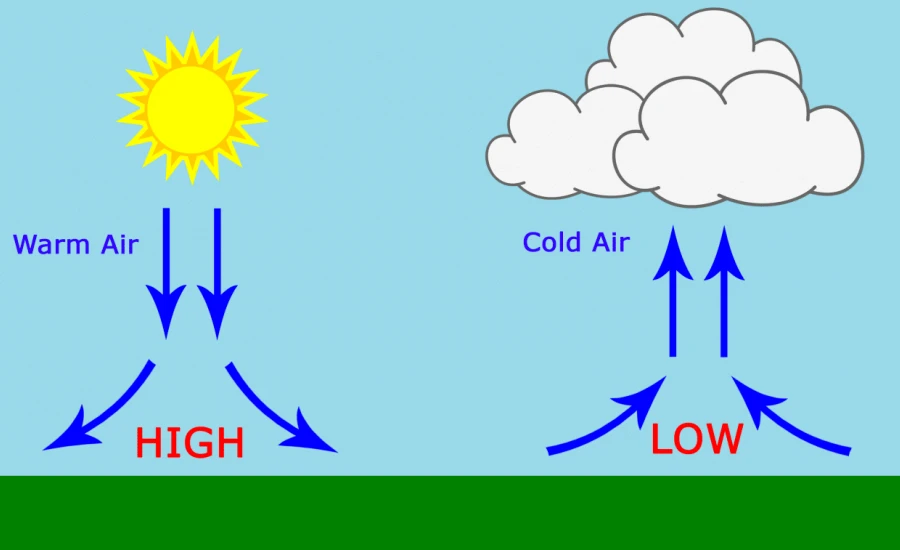
# The Definition of Atmospheric Pressure
## What is Atmospheric Pressure?
Atmospheric pressure, also known as barometric pressure, is the force exerted by the weight of the Earth’s atmosphere on a given surface area. It is one of the fundamental concepts in meteorology and physics, playing a crucial role in weather patterns and various scientific applications.
## Understanding the Basics
At sea level, the standard atmospheric pressure is defined as:
101,325 pascals (Pa)
1013.25 millibars (mb)
29.92 inches of mercury (inHg)
14.7 pounds per square inch (psi)
This pressure decreases with altitude as there is less atmosphere above to exert force downward. For every 1,000 feet (about 300 meters) of elevation gain, atmospheric pressure decreases by approximately 1 inch of mercury.
## Measurement and Units
Scientists use various instruments to measure atmospheric pressure:
– Barometers: The most common instrument for measuring air pressure
– Aneroid barometers: Use a flexible metal chamber
– Mercury barometers: Measure the height of a mercury column
Different units are used worldwide to express atmospheric pressure:
Unit | Value
Pascal (Pa) | 101,325
Hectopascal (hPa) | 1,013.25
Millibar (mb) | 1,013.25
Atmosphere (atm) | 1
Torr | 760
Inches of mercury (inHg) | 29.92
## Factors Affecting Atmospheric Pressure
Several factors influence atmospheric pressure:
– Altitude: Pressure decreases with height
– Temperature: Warm air is less dense than cold air
– Humidity: Moist air is less dense than dry air
– Weather systems: High and low pressure areas
## Importance in Daily Life
Atmospheric pressure affects many aspects of our lives:
– Weather forecasting: Pressure changes indicate weather patterns
– Aviation: Crucial for altitude measurements and flight planning
– Human physiology: Affects breathing at high altitudes
– Industrial processes: Used in various manufacturing applications
Understanding atmospheric pressure helps us predict weather, design aircraft, and even explain why our ears pop when we change elevation quickly. It’s a fundamental force that shapes our environment in countless ways.
Keyword: atmospheric pressure define

